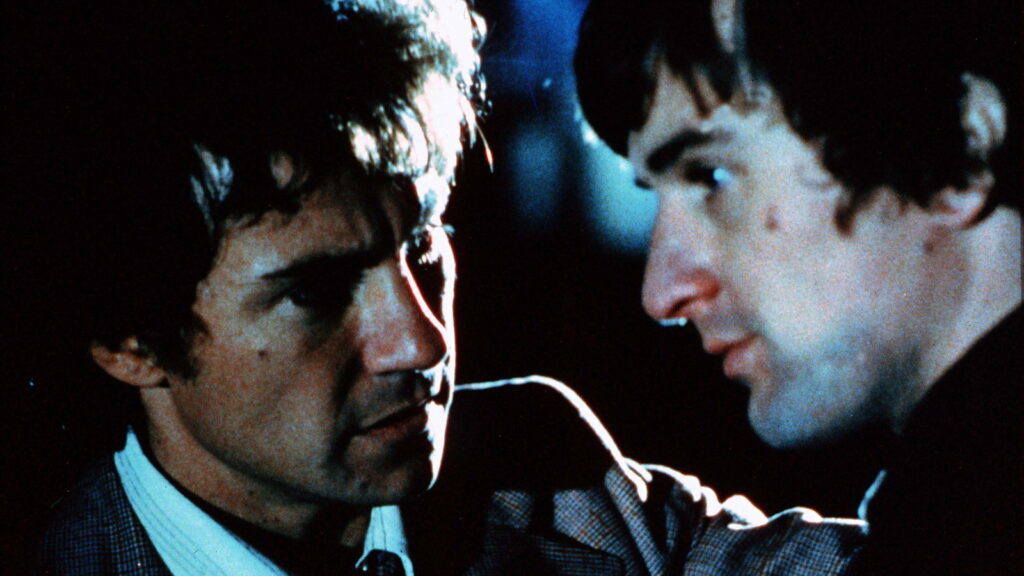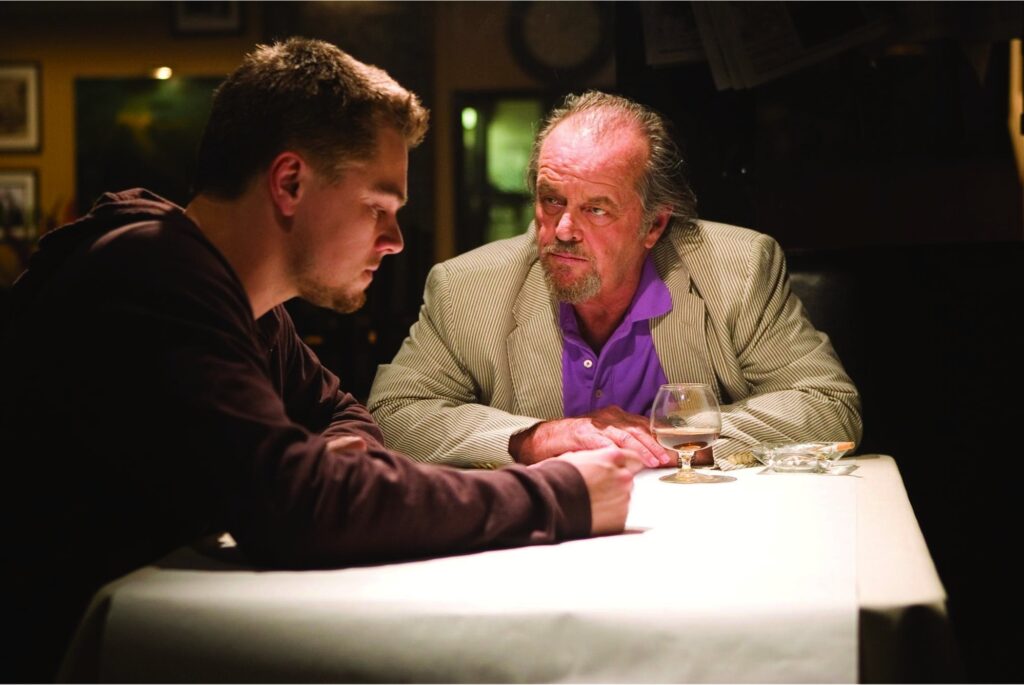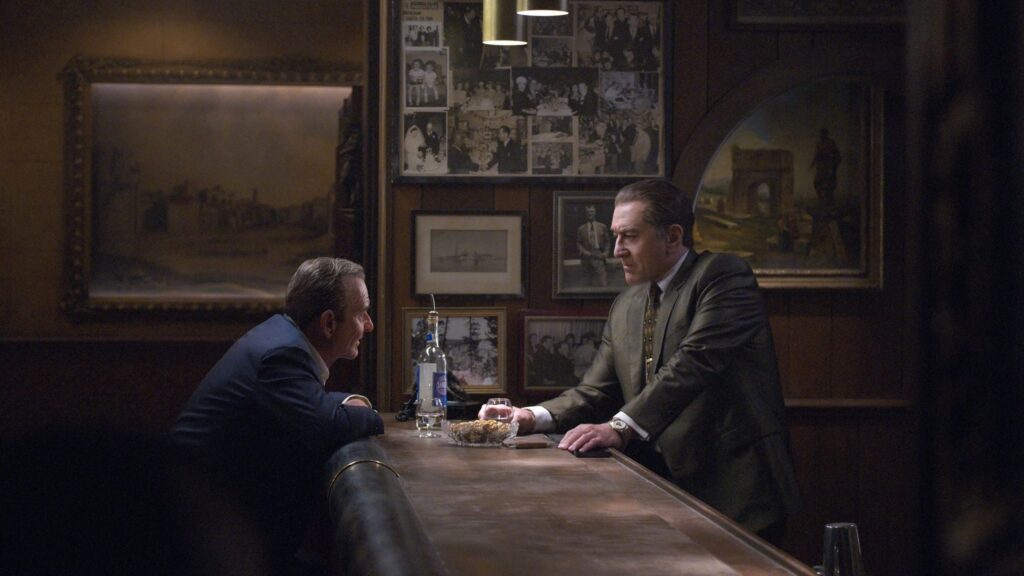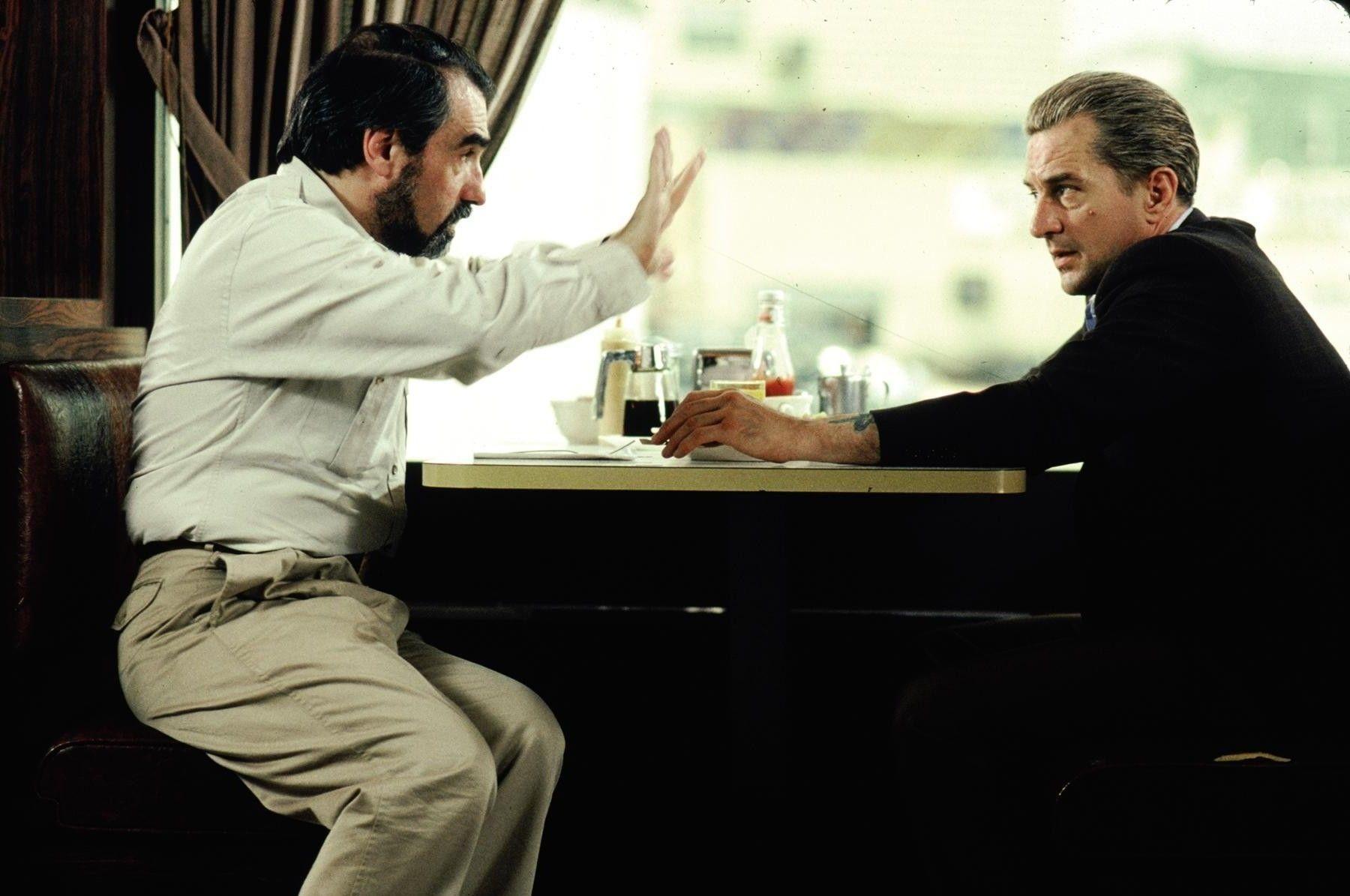This is the moment I come to explore the work of the person I admire most in filmmaking—legendary filmmaker Martin Scorsese. It is not an overstatement to claim that Scorsese is one of the most successful filmmakers of all time. Of course, others may have excelled in one particular area or significantly influenced a specific genre. Yet no filmmaker has revolutionized the art of storytelling as ceaselessly as Scorsese has.
Spanning sixty years, his filmography serves as a historical example of reinvention. Scorsese remains relevant today because he has been able to adapt to the times while staying true to his artistic voice. From Mean Streets to The Irishman, his works have redefined storytelling time and time again. That’s why Scorsese transcended the boundaries of the storyteller and became a chronicler of human complexity.
The Evolution of a Style

Martin Scorsese is celebrated for his vibrant portrayals of gangster lifestyles, capturing their allure, moral ambiguity, and inevitable downfall. While he has explored a wide range of genres, from character studies to psychological thrillers, his reputation primarily rests on his mob epics—each subtly reinvented to reflect his evolving vision. But, this narrow interpretation barely captures the depth of his work. Over decades, Scorsese has refined his narratives, peeling back the glamour to reveal the raw truths of ambition, power, and regret in their starkest form.
Let us follow his journey: from the raw energy of Mean Streets to the unflinching introspection of The Irishman—and examine how Scorsese pushed beyond the mob genre with The Wolf of Wall Street.
The Mob Comedy Mean Streets

Shot on a shoestring budget and starring his favored collaborators Robert De Niro and Harvey Keitel, Scorsese unleashed Mean Streets with raw energy and humor. It tells a gritty, personal tale of small-time crooks in New York.
Though overshadowed by grander mob sagas, Mean Streets is an intimate exploration of fractured masculinity, guilt, and survival. Scorsese’s exuberance is palpable as he captures the chaotic lives of his characters with crude humor laced with camaraderie. While less polished than his later works, it established the thematic backbone of his career.
The Definitive Mob Movie GoodFellas

By 1990, Scorsese was already a legendary filmmaker, having crafted masterpieces like Taxi Driver and Raging Bull. Then came GoodFellas, the film that redefined the mob genre for generations.
GoodFellas both glorifies and condemns the mob lifestyle. It entices the viewer with the intoxicating allure of power, only to reveal the inevitable destruction it breeds. Dynamic tracking shots, an iconic needle-drop soundtrack, and biting humor make GoodFellas a masterclass in cinematic storytelling.
Here, Scorsese achieves mastery over narration, balancing glamour and grit. GoodFellas neither starts off a typical mob movie, nor its metamorphosis into one, it is an unflinching exploration of ambition, betrayal, and the darker side of the American Dream.
The Mirage of Control Casino

Though Casino may seem like a spiritual sequel to GoodFellas, it delves even deeper into the psychology of power and greed. Against the neon-drenched backdrop of Las Vegas, the film examines how ambition and hubris unravel even the most disciplined individuals.
Scorsese peels back the layers of his characters, exposing them as masters of their universe while also laying bare their vulnerabilities. The interplay of excess and inevitable downfall makes Casino a nuanced study of ambition and human fragility.
The Modern Crime Epic The Departed

With The Departed, Scorsese shifted from the romanticism of mob life to craft a taut, paranoid thriller. This story of double agents and shifting loyalties captures a contemporary world where moral ambiguity reigns supreme.
The film marked a departure from his family-centric narratives, focusing instead on fractured identities and existential dread. It also earned Scorsese his first Oscar for Best Director. A reinvention of the gangster genre for a new era, The Departed was an evolution in both style and substance.
A Mob Movie Without Guns The Wolf of Wall Street

In The Wolf of Wall Street, Scorsese ventured beyond organized crime into the field of corporate greed and moral bankruptcy. Jordan Belfort’s rise and fall mirrors the arcs of Scorsese’s mob protagonists, though the setting shifts from back alleys to high-rise offices.
Relentlessly satirical and hedonistic, the film offers a biting critique of excess and corruption. Leonardo DiCaprio delivers a career-defining performance. With its raucous comedic tone and tragic underpinnings, The Wolf of Wall Street is, in many ways, a mob movie without guns.
The Eulogy of the Mob The Irishman

Finally, there is The Irishman, a poignant reflection on Scorsese’s career-long exploration of the mob genre. Living like a gangster is exhilarating, but it comes at a cost: strained relationships, a burdened soul, and a loss of purpose.
Through groundbreaking de-aging technology, Scorsese transforms this epic story of betrayal and regret into a somber meditation on mortality. The film trades kinetic energy for introspection, offering an eerily quiet farewell to both characters and themes.
Deconstruction of the Myth
From the raw chaos of Mean Streets to the introspective quiet of The Irishman, Scorsese has continually deconstructed the mob genre. He critiques and builds upon his own work, evolving and deepening his narratives with fresh eyes. By exploring the obsession and consequences of power in GoodFellas and Casino, venturing into new terrain with The Wolf of Wall Street, and bidding farewell in The Irishman, Scorsese has solidified his legacy as a master filmmaker and philosopher of human nature. Happy 82nd, Marty—you are the best to ever do it!

Chaitanya Tuteja is someone who enjoys sharing his thoughts on books, movies, and shows. Based in India, he appreciates exploring different stories and offering honest reflections. When not reflecting on his favorite media, Chaitanya enjoys discovering new ideas and embracing life’s simple moments.


На этом сайте вы сможете найти последние новости Краснодара.
Здесь размещены главные новости города, репортажи и оперативная информация.
Следите за городских новостей и читайте информацию из первых рук.
Если вам интересно, что происходит в Краснодаре, читайте наш сайт регулярно!
https://rftimes.ru/
На данном сайте можно найти последние новости Краснодара.
Здесь размещены актуальные события города, обзоры и важные обновления.
Следите за городских новостей и читайте информацию из первых рук.
Если вам интересно, что происходит в Краснодаре, читайте наш сайт регулярно!
https://rftimes.ru/
Here, you can find lots of online slots from top providers.
Users can try out classic slots as well as modern video slots with vivid animation and bonus rounds.
Whether you’re a beginner or a seasoned gamer, there’s always a slot to match your mood.
play aviator
All slot machines are instantly accessible 24/7 and compatible with PCs and tablets alike.
You don’t need to install anything, so you can start playing instantly.
Platform layout is intuitive, making it convenient to explore new games.
Register now, and discover the world of online slots!
Our platform makes available many types of prescription drugs for ordering online.
You can conveniently get needed prescriptions from anywhere.
Our range includes popular treatments and targeted therapies.
Everything is supplied through reliable suppliers.
kamagra 100
We prioritize discreet service, with secure payments and prompt delivery.
Whether you’re treating a cold, you’ll find trusted options here.
Begin shopping today and experience reliable access to medicine.
This website makes available a large selection of prescription drugs for online purchase.
Anyone can securely buy essential medicines with just a few clicks.
Our inventory includes popular solutions and more specific prescriptions.
The full range is acquired via verified pharmacies.
vibramycin contraindications
We maintain quality and care, with secure payments and prompt delivery.
Whether you’re treating a cold, you’ll find safe products here.
Visit the store today and enjoy convenient online pharmacy service.